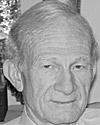Two University professors recently became some of the most cited researchers in their field, according to a national database of research publications.
The Institute for Scientific Information recognized Ronald Delaune and William Patrick, both professors in the School of the Coast and Environment’s Wetland Biogeochemistry Institute, on its Web site ISIHighlyCited.com.
Patrick, a Boyd professor who is in his 50th year at the University, and Delaune have received national and international attention for their wetlands research.
What attracted you to your field of research?
“Basically, I had an interest in agriculture and soil science, and over the years it became a big interest in wetlands,” Delaune said.
Were you excited to learn you had been recognized?
“Yes, very excited,” Delaune said. “I realize it represents some of the most highly published researchers in the country, so I’m in an important class of individuals.
“Not particularly; [chuckles] a few things come your way in a long career,” Patrick said.
“I was particularly pleased that Dr. Delaune was cited.”
Have you received congratulations from your colleagues regarding the award?
“Several people from other universities called and congratulated me,” Delaune said. ‘Within the University system, I’ve had several other faculty call and congratulate me.”
Does it give you a sense of pride to encounter references to your own work when reading scientific publications?
“It’s something you should expect if you work in an area,” Patrick said. “You should interact with your colleagues, and you expect other people who are interested in this kind of work to be aware of your work. So it’s not something you go home and tell your wife about, but you’re pleased that your work is cited.
What is the greatest honor you have received in your years of research?
“I’ve been elected a fellow in the Soil Science Society of America,” Delaune said.
“An honorary degree from the University of Ghent in Belgium, and also a visiting professorship at the University of London,” Patrick said.
Much of your work deals with wetlands and biogeochemical processes. Do you find that Louisiana is a particularly interesting place to study this?
“It’s very interesting because it’s a wetlands state and we have a long coastline,” Patrick said. “But we also do work in other states and other countries. We have research projects either now or recently in Thailand, Indonesia, China, the Philippines, Belgium, Germany and England, so our work is pretty worldwide, although most of our effort is here in Louisiana.”
What is your greatest contribution to your field?
“Providing a better understanding of the biogeochemical processes involved in preserving wetlands,” Dealaune said.
“To better understand the redox and pH chemistry of wetland soils,” Patrick said.
How important is it to you to know you’ve had this kind of impact on science throughout your career?
“Well, it’s not very surprising because I’ve gotten quite a bit of recognition for the work that the Wetland Biogeochemical Institute has done on wetlands over the years.,” Patrick said.
How has that recognition benefitted your institute?
“We have a lot of foreign scientists who come here to work because they know about the program in the institute, and we get a lot of graduate students from other countries and other states that are interested in wetlands research,” patrick said.
Why did you choose to invest your time and career at LSU?
“Well, basically, I’m from Louisiana, I like Louisiana and I prefer to stay here,” Delaune said.
“Because Louisiana is a wetlands state and there were opportunities to study wetlands here at LSU,” Patrick said.
In a minute – a brief interview
February 26, 2003

In a minute – a brief interview



